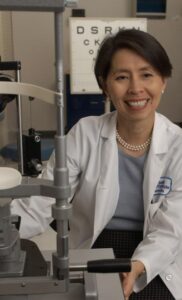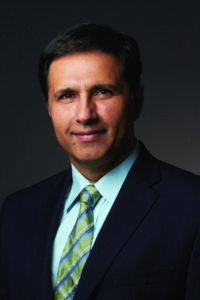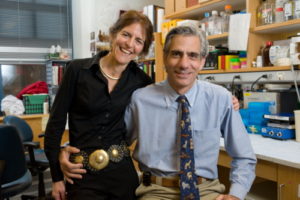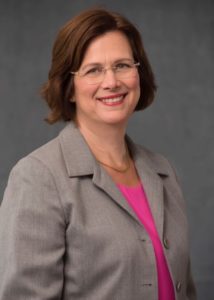- Retina Research Foundation
- About RRF
- Pilot Study Grants
- Grant Recipients 2025
- Samuel M. Wu, PhD
- Yingbin Fu, PhD
- Graeme Mardon, PhD
- Wei Li, PhD
- Yuqing Huo, MD, PhD
- Rui Chen, PhD
- Wenbo Zhang, PhD
- Curtis Brandt, PhD
- Lih Kuo, PhD
- Timothy Corson, PhD
- Jianhai Du, PhD
- Francesco Giorgianni, PhD
- James Monaghan, PhD
- Seongjin Seo, PhD
- Andrius Kazlauskas, PhD
- Erika D. Eggers, PhD
- Ann C. Morris, PhD
- Ming Zhang, MD, PhD
- Christine Sorenson, PhD
- Alex J. Smith, PhD
- Jeffrey M. Gross, PhD
- David M. Wu, MD, PhD
- Kinga Bujakowska, PhD
- Eric Weh, PhD
- Ching-Kang Jason Chen, PhD
- Jakub K. Famulski, PhD
- Thanh Hoang, PhD
- Georgia Zarkada, MD, PhD
- Eleftherios Paschalis Ilios, PhD
- Oleg Alekseev, MD, PhD
- Erika Tatiana Camacho, PhD
- Patricia R. Taylor, PhD
- Elizabeth Vargis, PhD
- Publications
- Grant Guidelines and Information
- Grant Application
- Grant Recipients 2025
- Research Programs
- Contact Us
- Giving
- RRF History
- Home
C L Schepens, MD/AAO Award
This award in the amount of $50,000 was created by RRF, the Paul Kayser Fund, and Schepens International Society to recognize a vision scientist who has contributed new knowledge of the visual process of vitreoretinal diseases and/or has made special contributions to prevent and decrease blindness. The award is named in honor of Charles L. Schepens, MD, a pioneer in the field of ophthalmology who designed and developed many innovative ophthalmic instruments and surgical procedures.
This award and gold medal are presented each year at Retina Sub-specialty Day at the meeting of the American Academy of Ophthalmology. The recipient is chosen by a special committee composed of a representative from each of the following: Retina Society, Macula Society, American Society of Retina Specialists, Club Jules Gonin and the Retina Research Foundation.
2024 Schepens Medalist
Steven T. Charles, MD
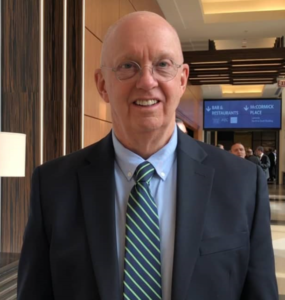
Dr. Charles will give the Charles L. Schepens lecture during the morning session of the Retina Sub-specialty day at AAO’s annual meeting on October 18, 2024 in Chicago, IL.
Title of Schepens Lecture:
Systems Engineering at the Intersection of Technology and Technique
Career Achievements and Research Interests
Steve Charles, MD has developed many of the techniques and devices used by vitreoretinal surgeons worldwide. He has performed over 46,000 vitreoretinal surgeries, lectured in 51 countries and operated in 25, delivered over 25 named lectures, and over 2000 speaking trips. He authored a leading textbook in the field which is now in the 6th edition and authored over 200 articles in the medical literature and over 50 book chapters. He is a Fellow in the American Society of Retinal Specialists, American College of Surgeons and International College of Surgeons and a member of the Retina Society, Macular Society, American Society of Retinal Specialists, Club Jules Gonin, American Society of Cataract and Refractive Surgery, American Academy of Ophthalmology, and the Dowling Society. He served on the Board of Governors of the ARVO Foundation for Eye Research. He has received the Laurate honor from the American Academy of Ophthalmology, gave the Schepens lecture at the Retina Society and the Kelman lecture at the ASCRS, received the Wacker Medal from the Club Jules Gonin, the first Founders Medal from the Vitreous Society, was inducted into the University of Miami School of Medicine Medical Alumni Association Hall of Fame, and was named by Ocular Surgery News as one of the top ten innovators in the past 25 years. He won the Lifetime Achievement Award from Clinical Trials at the Summit. He is consistently listed in Best Doctors in America and Becker’s Top 34 Ophthalmologists in America. Listed by Newsweek as America’s Best Ophthalmologist. He is a Clinical Professor of Ophthalmology at the University of Tennessee.
After four years in engineering school, he completed medical school at the University of Miami Leonard Miller School of Medicine. He did research all four medical school years at the Bascom Palmer Eye Institute. After a medical internship at Jackson Memorial Hospital in Miami he completed a residency at the Bascom Palmer Eye Institute followed by a two year Clinical Associate appointment at the National Eye Institute (NIH); focused on vitreoretinal surgery, angiogenesis research, and medical device engineering.
He is a mechanical and electrical engineer and has over 200 issued or pending patents. He is a consultant for Alcon Laboratories and the principal architect of the Alcon Accurus and Alcon Constellation Vision System.
He is the Founder of MicroDexterity Systems, which developed robots for dexterity enhancement for minimally invasive knee and hip replacement, spine surgery, and skull base neurosurgery. Stryker, Inc. acquired MicroDexterity Systems, in December 2009. Dr Charles was inducted into the Society of Entrepreneurs; a Memphis based organization.
2023 Schepens Medalist
Emily Y. Chew, MD
Dr. Chew delivered the Charles L. Schepens lecture during the morning session of the Retina Sub-specialty Day at the AAO’s annual meeting on November 3, 2023 in San Francisco, CA.
Title of Schepens Lecture:
Macular Telangiectasia type 2: Tale of Global Private and Public Collaboration
Career Achievements and Research Interests
Emily Y. Chew, MD is the Director of the Division of Epidemiology and Clinical Applications at the National Eye Institute (NEI), National Institutes of Health (NIH), and she is also the Chief of the Clinical Trials Branch. She received her medical degree and her ophthalmology training at the University of Toronto, School of Medicine. She completed her fellowship in Medical Retina at the Wilmer Eye Institute, the Johns Hopkins Medical Institutes and the U. of Nijmegen, the Netherlands.
Dr. Chew has conducted clinical trials and epidemiologic studies in retinovascular diseases such as age-related macular degeneration (AMD), diabetic retinopathy, the leading causes of blindness. She led large, randomized trials including the Age-Related Eye Disease Study (AREDS), AREDS2, and the Actions to Control Cardiovascular Risk in Diabetes (ACCORD) Eye Study. She has conducted clinical trials in rare retinal diseases such as the international Macular Telangiectasia Project (Mac Tel Type 2 Project) and the recent study of belzutifan for von Hippel Lindau disease. She also collaborates with colleagues at the National Library of Medicine (NLM/NIH) utilizing of artificial intelligence/deep learning on the detection and progression of AMD and other ocular diseases.
Dr. Chew is currently a member of the editorial boards of Ophthalmology, Ophthalmology Retina, and Retina journals. She also serves as the inaugural editor-in-chief for Ophthalmology Science. She previously served on the editorial board of Investigative Ophthalmology and Vision and had served as the editor of the Transactions of the American Ophthalmological Society (2011-2018). Dr. Chew has also served on numerous committees in the American Academy of Ophthalmology, and she currently is the Chair of the AAO IRIS Registry Data Analytics Committee. Dr. Chew has been recognized for her scientific accomplishments and mentoring efforts by numerous organizations, including the National Institutes of Health, American Academy of Ophthalmology, Association for Research in Vision and Ophthalmology, American Ophthalmological Society, Academia Ophthalmologica Internationalis, Macula Society, Retina Society, American Society of Retina Specialists, and others.
2022 Schepens Medalist
Philip J. Rosenfeld, MD, PhD
Awarded at American Academy of Ophthalmology (AAO) Annual Meeting
Retina Sub-specialty Day, September 30, 2022, Chicago, IL
Title of Schepens Lecture:
Rediscovering AMD with SS-OCT Imaging
Career Achievements and Research Interests
Philip J. Rosenfeld MD, PhD is Professor of Ophthalmology at the Bascom Palmer Eye Institute of the University of Miami Miller School of Medicine. He is a retina specialist and a world-renown expert on age-related macular degeneration (AMD) and optical coherence tomography (OTC). He played a pivotal role in the development of anti-VEGF therapies for neovascular and exudative eye diseases. Of note, he pioneered the use of Avastin (bevacizumab) therapy for exudative eye diseases.
Dr. Rosenfeld has been involved in the clinical development of optical coherence tomography (OCT) instruments, and he pioneered the use of OCT-guided treatment with anti-VEGF therapy. Dr. Rosenfeld has been involved with the development of complement inhibitors for the treatment of dry AMD and the development of novel OCT algorithms for the diagnosis and study of AMD in clinical trials, especially nonexudative (dry) AMD. Recently, his research team has focused on the development and use of swept-source OCT angiography and novel algorithms to investigate retinal diseases with the goal of developing new OCT clinical trial anatomic endpoints for use in the study of novel AMD therapies. Dr. Rosenfeld has published over 150 research manuscripts. He is the recipient of numerous awards and has been named to The Ophthalmologist Power List in 2014, 2016, 2018, 2019, 2020 and 2022.
2021 Schepens Medalist
Mark S. Humayun, MD, PhD
Awarded at American Academy of Ophthalmology (AAO) Annual Meeting
Retina Sub-specialty Day, November 12, 2021, New Orleans, LA
Title of Schepens Lecture
Advanced Retinal Implants, The Abiotic-Biotic Interface Challenges and Opportunities
Career Achievements, and Research Interests
Dr. Humayun is the Cornelius J. Pings Chair in Biomedical Sciences, professor of ophthalmology, biomedical engineering, and integrative anatomical sciences, director of the University of Southern California (USC) Ginsburg Institute for Biomedical Therapeutics, and co-director of the USC Roski Eye Institute.
Dr. Humayun is an internationally recognized pioneer in vision restoration. He assembled a team of multidisciplinary experts to develop the first FDA-approved artificial retina, Argus II, for sight restoration. For his extraordinary contributions, Dr. Humayun was awarded the United States’ highest technological achievement, the National Medal of Technology and Innovation, by President Barack Obama in 2016.
Dr. Humayun is a member of the US National Academies of Medicine, Engineering, and Inventors. He is a past president of ASRS (2016-2018) and a fellow of the Institute of Electrical and Electronics Engineers (IEEE), which honored him with the 2018 IEEE Biomedical Engineering Award and the 2020 IEEE Medal for Innovations in Healthcare Technology. He has more than 125 issued patents, over 250 peer-reviewed publications, and a Google Scholar h-index of 90.
2020 Schepens Medalist
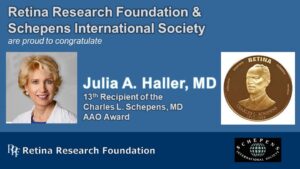
Julia A. Haller, MD
The Charles L Schepens lecture was given by Dr. Haller on the Retina Subspecialty Day, of the AAO Virtual Annual Meeting, November 13, 2020. Following the virtual presentation, Dr. Haller received the Charles L. Schepens medal during a small celebration with her closest professional colleagues at Wills Eye Hospital, Philadelphia, PA.
Title of Schepens Lecture
Retina in the Pandemic – Hear Our Roar!
To view a brief synopsis of Dr. Haller’s presentation, please click here
Career Achievements, and Research Interests
Dr. Julia Haller holds an A.B. from Princeton University and a medical degree from Harvard Medical School. She completed an internship at Johns Hopkins and a fellowship in ocular pathology at Manhattan Eye, Ear and Throat Hospital. During her residency at the Wilmer Eye Institute at John Hopkins Hospital, Dr. Haller became the first woman to serve as the Chief Resident at Wilmer Eye Institute at Johns Hopkins University.
Dr. Haller is one of the world’s most renowned retina surgeons. She joined the leadership of Wills Eye Hospital in 2007, where she serves as Ophthalmologist-in-Chief and the William Tasman, MD Endowed Chair at Wills Eye Hospital. Dr. Haller is Professor and Chair of the Department of Ophthalmology at the Sidney Kimmel Medical College at Thomas Jefferson University. She has published over 350 scientific articles and book chapters.
In 2019, Dr. Haller was elected to the National Academy of Medicine (NAM), considered one of the highest honors in the fields of health and medicine. The Academy recognizes individuals who have demonstrated outstanding professional achievement and commitment to service. Specifically, Dr. Haller was elected for innovating translational advances against blindness on many fronts, including sustained drug delivery devices, ocular pharmacotherapy, retinal “chip” implants, gene therapy, telemedicine, and combating health care disparities.
2019 Schepens Medalists
Jean Bennett, MD, PhD and Albert Maguire, MD
Awarded at American Academy of Ophthalmology (AAO) Annual Meeting
Retina Subspecialty Day, October 211, 2019, San Francisco, CA
Title of Schepens Lecture
Retinal Gene Therapy: From Theory to Practice
Career Achievements, and Research Interests
Jean Bennett, MD, PhD
Director, Center for Advanced Retinal and Ocular Therapeutics (CAROT), University of Pennsylvania Perelman School of Medicine; Professor of Ophthalmology; Cell & Developmental Biology, University of Pennsylvania Perelman School of Medicine; Vice Chairman for Research, Scheie Eye Institute, University of Pennsylvania Perelman School of Medicine; Scientist, Department of Pediatric Ophthalmology, The Children’s Hospital of Philadelphia
Dr. Bennett is a physician-scientist with experience/expertise in molecular biology, vector development and gene therapy translational studies. She has developed gene transfer approaches to test treatment strategies for retinal degenerative and ocular neovascular diseases, to elucidate retinal differentiation pathways and to identify pathogenetic mechanisms that lead to blindness. Dr. Bennett has established a true “from bench to bedside” program, and thus she is familiar with steps necessary to go from proof-of-concept all the way to those necessary for testing of safety and efficacy in humans with blinding disease. Dr. Bennett was the scientific leader of a team that translated reversal of blindness in animal models to demonstration of efficacy and safety in children and adults. Her team was the first to enroll pediatric subjects with a non-lethal disease as gene therapy participants. The team completed the first randomized, controlled, multi-center gene therapy Phase 3 gene therapy trial targeting a genetic disease. This work led to the first and only approved gene therapy for inherited disease in USA and in Europe and the first approved gene therapy product targeting a retinal disease worldwide.
Albert M. Maguire, MD
Professor of Ophthalmology; Senior Attending in Vitreo-retinal Surgery, Scheie Eye Institute; Retina Attending in the Division of Pediatric Ophthalmology at The Children’s Hospital of Philadelphia; Co-Director, Center for Advanced Retinal and Ocular Therapeutics (CAROT), Penn Medicine
Albert M. Maguire is a professor in the Department of Ophthalmology at the University of Pennsylvania Perelman School of Medicine where he is a retina specialist and vitreo-retinal surgeon. He is also the Attending Physician for Retina at The Children’s Hospital of Philadelphia. Dr. Maguire is most well known for developing and carrying out the surgical procedures that are now used in a large number of gene therapy clinical trials testing interventions for blindness, He is also known for directing the first Phase 1-3 gene therapy clinical trials for congenital blindness which demonstrated efficacy and safety in children and adults. Dr. Maguire was instrumental in all of the proof-of-concept studies that first showed that gene-based intervention of blindness was possible. Results from the clinical trials that he directed led to the first approved gene therapy drug for genetic disease worldwide and the first US FDA-approved recombinant virus-based gene therapy product for a genetic disease. Prof. Maguire’s preclinical studies led to several gene therapy clinical trials other than the ones he directed. In the process, he developed a gene therapy surgical training program that has certified retinal surgeons around the world for retinal gene therapy delivery. Professor Maguire received a bachelor’s degree in Psychology from Princeton University, a medical degree from Harvard Medical School, completed an internship in Surgery at Yale University School of Medicine, a residency in Ophthalmology at the Wilmer Eye Institute, Johns Hopkins School of Medicine and a combined medical/surgical Fellowship in Retina at William Beaumont Hospital, Royal Oak, MI. While serving as Chief Resident at the Wilmer Eye Institute, he was recruited to University of Pennsylvania and The Children’s Hospital of Philadelphia.
Professor Maguire has received numerous awards, including the American Academy of Ophthalmology Achievement Award, the Paul Kayser International Award in Retina Research, The Association for Retinopathy of Prematurity and Related Diseases Award, the Retina Research Foundation Pyron Award, The Clinical Innovator Award (National Medical Association), and the Antonio Champalimaud Vision Award. Dr. Maguire has established a Center for Excellence in gene therapy at both The Children’s Hospital of Philadelphia and the University of Pennsylvania School of Medicine where patients with bi-allelic congenital blindness due to RPE65 deficiency are now treated. He continues to run several other gene therapy clinical trials for blinding diseases. He is also Co-Director of the Center for Advanced Retinal and Ocular Therapeutics (CAROT), a Center that aims to develop treatments for a wide range of blinding diseases and to train the next generation of physician/scientists.
2018 Schepens Medalist
Joan W. Miller, MD
David Glendenning Cogan Professor of Ophthalmology
Chief of Ophthalmology, Mass Eye and Ear and Mass General Hospital
Chair, Department of Ophthalmology, Harvard Medical School
Boston, MA
Awarded at American Academy of Ophthalmology (AAO) Annual Meeting
Retina Sub-specialty Day, October 26, 2018, Chicago, IL
Title of Schepens Lecture
Developing Therapies for AMD: The Art and Science of Problem-solving
Career Achievements, and Research Interests
Joan W. Miller, MD, is the David Glendenning Cogan Professor of Ophthalmology and Chair of the Department of Ophthalmology at Harvard Medical School (HMS), and Chief of Ophthalmology at Massachusetts Eye and Ear and Massachusetts General Hospital. Dr. Miller earned her medical degree and received her ophthalmology residency training from Harvard Medical School, and then completed fellowships in ophthalmology research and vitreoretinal surgery at Mass. Eye and Ear. In 2003, Dr. Miller became the first female physician to achieve the rank of Professor of Ophthalmology at Harvard Medical School, and the first woman to serve as chair of the Department of Ophthalmology. She is also the first woman appointed as Chief of Ophthalmology at both Mass. Eye and Ear and Massachusetts General Hospital.
An internationally recognized expert on retinal disorders, Dr. Miller and her colleagues at Mass. Eye and Ear developed verteporfin photodynamic therapy (PDT), the first pharmacologic treatment for retinal disease; co-discovered the role of vascular endothelial growth factor (VEGF) in neovascular eye disease; and demonstrated the therapeutic potential of VEGF inhibitors in neovascular eye disease. Her current studies focus on the genetics of age-related macular degeneration (AMD), strategies for early intervention in AMD, and neuroprotective therapies for retinal disease.
Dr. Miller has authored more than 200 original research articles and nearly 80 book chapters, review articles, or editorials. Dr. Miller is on the editorial board for the journals Ophthalmology and Ophthalmology Retina and an editor of several textbooks, including the 3rd edition of Albert and Jakobiec’s Principles and Practice of Ophthalmology (Saunders). Dr. Miller is a member of the National Academy of Medicine, the Academia Ophthalmologica lnternationalis, and the Dowling Society, as well as a Gold Fellow of Association for Research in Vision and Ophthalmology (ARVO). Among her numerous honors, Dr. Miller delivered the 2012 Edward Jackson Lecture for the American Academy of Ophthalmology, and was a co-recipient of the 2014 António Champalimaud Vision Award, the highest distinction in ophthalmology and visual science. In 2015, Dr. Miller became the first woman to receive the Mildred Weisenfeld Award for Excellence in Ophthalmology from the Association for Research in Vision and Ophthalmology (ARVO).
Previous C L Schepens, MD/AAO Award Recipients
2023 Emily Y. Chew, MD
2022 Philip J. Rosenfeld, MD, PhD
2021 Mark S. Humayun, MD, PhD
2020 Julia A. Haller, MD
2019 Jean Bennett, MD, PhD and Albert Maguire, MD
2018 Joan W. Miller, MD
2017 Frederick L. Ferris III, MD
2016 Harry W. Flynn, Jr., MD
2015 Mark S. Blumenkranz, MD
2014 Jerry A. Shields, MD
2013 Lawrence A. Yannuzzi, MD
2012 Alan C. Bird, MD
2011 Stanley Chang, MD
2010 William Tasman, MD
2009 Thomas Aaberg, MD
2008 Harvey Lincoff, MD

